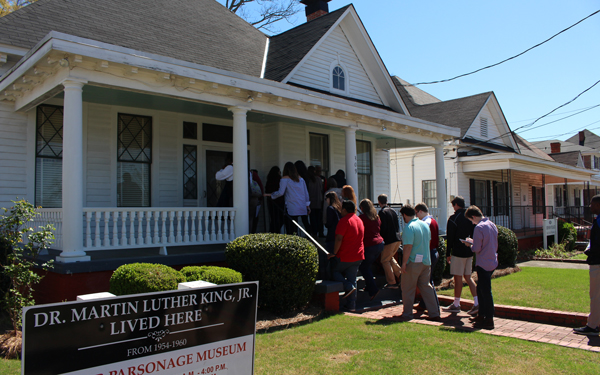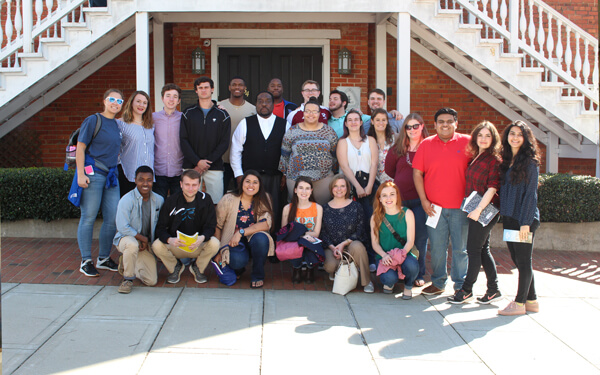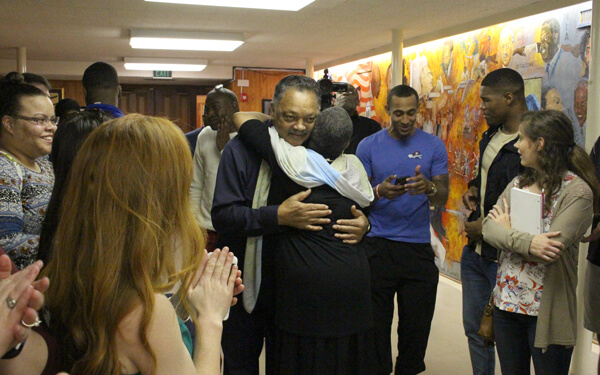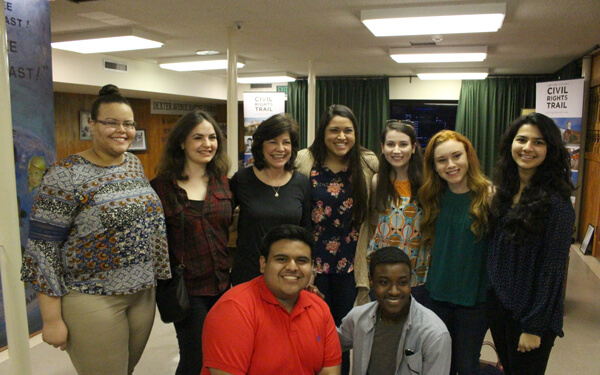Students Visit Civil Rights Sites
“
When standing on the bridge,” Marshall Perkins said, “there was a far-fetched feeling I had because I could not imagine the courage and strength it took to stand up against such a hateful cultural orthodoxy that was inculcated into society at this time.”
Perkins was one of 22 PC students to visit the Edmund Pettis Bridge, the site of Bloody Sunday in 1965, and other historically significant sites on a recent trip to Alabama and Georgia. Dr. Booker Ingram, PC’s Charles Dana Professor of Political Science and Director of Diversity and Inclusion, and Dr. Erin McAdams, associate professor of political science, led the students on the Civil Rights Tour.
The students enjoyed seeing first-hand what they learned about in class.

“I really appreciated that I was able to read about the events and places during the movement and then have the chance to travel to those exact places,” said senior political science and psychology major Julia Law. “This allowed me to soak in the emotions tied with those locations and gave me a chance to empathize with all the other individuals who were once there.”
The students toured the National Historic Site at Tuskegee University before spending a day in Montgomery and Selma. There, they visited the Rosa Parks Museum, the Martin Luther King, Jr. Parsonage, and Dexter Avenue Baptist Church, where King served as pastor.

The students had a treat in store for them at the church: There, they saw the Rev. Jesse Jackson.
“Oftentimes we forget that it was real people that made the Civil Rights Movement a success,” said sophomore political science major Katie Russell. “Visiting the church and home of Martin Luther King Jr. made him seem like more than a person you hear about in history class but made him seem more ‘real.’”
The group also visited the Lowndes County Interpretive Museum in Hayneville, Alabama. The museum documents the work that the Student Non-Violent Coordinating Committee did in organizing Selma’s tenant farmers and sharecroppers in their struggle to gain the right to vote.

“We were also fortunate to have been in Selma during the Alabama Jubilee that commemorates the sacrifices made by civil rights demonstrators during Bloody Sunday in the struggle for voting rights,” Ingram said.
According to Perkins, the trip was a perfect complement to Professor Ingram’s African Americans in the Political System course.
“(Dr. Ingram) took the perspective of the Civil Rights era to a new level, and it really peaked my interest on delving deeper into the history of such a dark period of time in America,” Perkins said. “I thought (the trip) was a once-in-a-lifetime chance to enhance my knowledge and understanding of African American history.”
Have you thought about majoring in political science? Check out our Political Science Careers page to see where a political science major might lead you.
